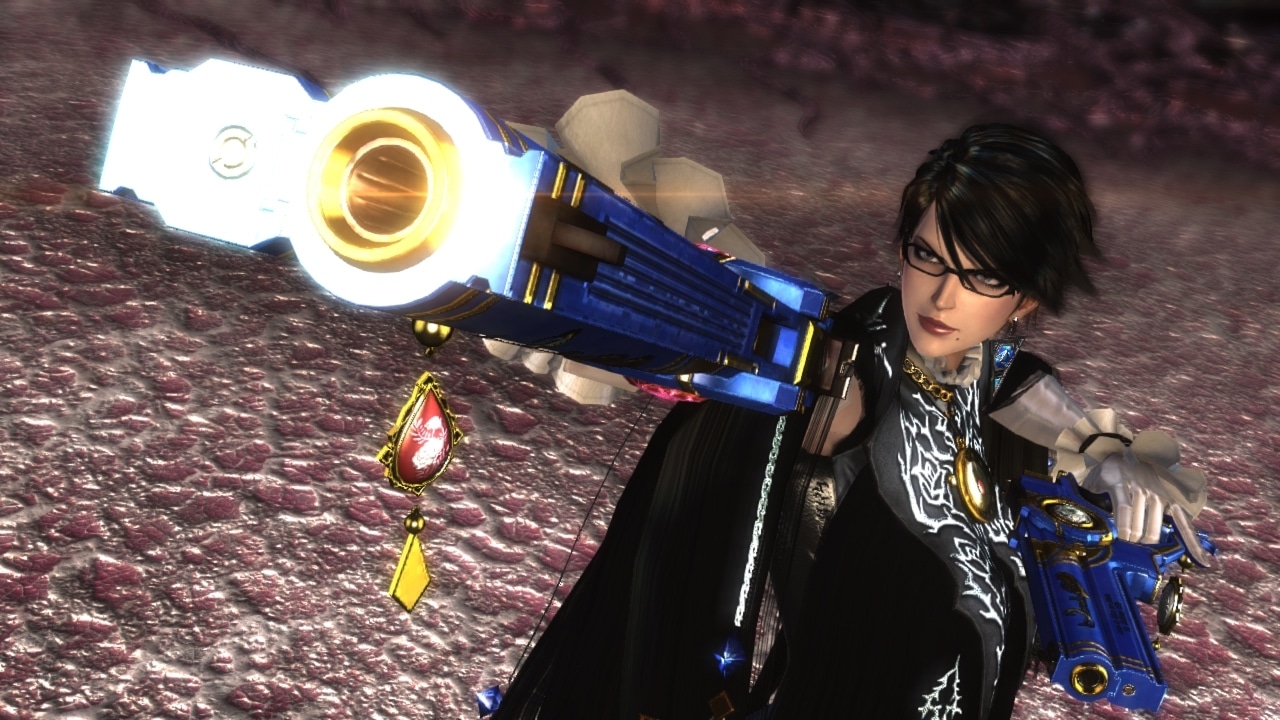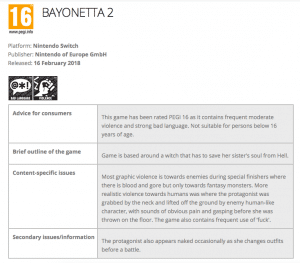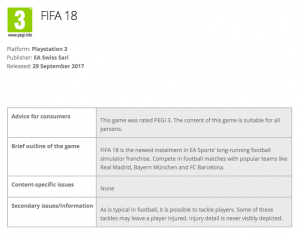Age-Ratings: Beyond the Number, Part 1

How age-ratings work is deliberately straightforward. An 18-years-plus rated game is only suitable for those aged 18 and above, and it's as simple as that.
The same, of course, is true for all the categories, from 3-years-plus all the way through to the higher tiers. However, the number of an age rating in isolation says very little about why the game was deemed suitable for that rating. It just makes clear which rating has been granted.
That is why The VSC Rating Board – which examines games before granting them PEGI ratings in the UK – makes public additional information for every game it rates. This detail is called the 'Additional Consumer Information', or 'ACI' for short.
A typical ACI sheet for a particular game will offer insights into the type of content the game features, and what about it warrants the rating given. It may also make clear the inclusion in games of elements such as in-game payments that use real money.
You can search for the ACI of numerous' rated games over on the VSC website.
This article is the first of a two-part piece on how ACIs work and what they can tell us. As part of our ongoing series of features looking at the rating of controversial narrative adventure Detroit: Become Human http://www.askaboutgames.com/why-is-detroit-become-human-so-controversial/, the second part of this feature will look at how that game's ACI passes a lens over the controversy. By then, here at AskAboutGames we'll have played the game through, and so will also be able to explore how the content is reflected in the ACI.
Before that, though, lets have a closer look at what an ACI is, and how it is structured. We'll do that by looking at the ACI sheet of this year's Nintendo Switch release of the action game Bayonetta 2.

At the top you'll see the PEGI age rating, confirmation of the specific version of the game, the name of the company that publishes it, and its release date. Then you'll see some of the symbols that represent PEGI's different 'content descriptors'. With Bayonetta you can see that the game has been labeled as featuring 'bad language' and 'violence'; factors that significantly influenced the age rating of the game. You can find a full guide to the content descriptors here.
Then there is 'advice for consumers', giving a broad overview of the rating applied and the reasons for doing so.
Next comes the 'brief outline of the game', which gives a rough sense of the game for context. It may seem trivial, but if you're asking a younger family member about a game they may be playing, being able to describe it even simply may be very useful.
The 'content-specific issues' section is often the most detailed. It will often give specific examples of content from the game, or may look at the overall gameplay experience and the interaction involved. Here general themes and tones can also be described.
Finally, there comes the 'secondary issues/information' category, which is not always used. It is a place for other important notes relating to content, age rating, and sometimes examples of specific content that may be a trigger or concern for a certain user. In the case of Bayonetta 2, for example, instances of nudity are highlighted; that may be useful to a player, parent or guardian with concerns around depictions of nudity regardless of the age of the person consuming the game. This section may also feature notes about if a title includes the ability to spend real money in-game, or if certain language is used.
By contrast, here is the ACI sheet for the 3-years-plus PEGI-rated game FIFA 18. In this example you can see how different things are when a game contains no concerning or potentially age-inappropriate content.

All of this information is made available to help inform those making video game buying decisions. It may make it easier to explain to a child why they cannot play a given 18-rated title, or it may, for example, help you be more informed about a game that you feel is suitable for you to give as a gift. Knowledge is power, and the ACI is designed to help you understand the rating applied, and bolster your decision making about the role games play in your family.
To read part 2 of this feature, which focuses on the ACI of Detroit: Become Human, click here.





